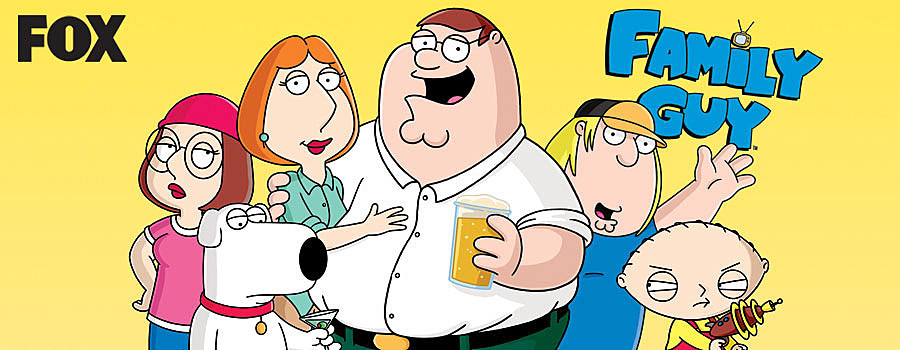PHILOSOPHY, THEN AND NOW
Keaton Davis
H1 Group 4
Midterm
PREVIOUSLY, ON AS SEEN ON TV:
"...do we sometimes try so hard to protect a particular minority group that we end up discriminating against the majority, or even another minority?"
"While I do think we have come a long way in integrating minorities, we still have work to do...Having minorities onscreen could also help battle the racism that still clings to our society."
SEASON 2, EPISODE 1: "GOD OR NO GOD? THAT IS THE QUESTION."
Television has always been more on the secular side than not, but that does not mean it was (and is) completely bereft of religious influences. However, as America has grown more accepting of beliefs other than Christianity, the nature of religious presence in television has followed suit.
First, let's take a look at some of the older TV shows that were known to have religious flavors. Little House on the Prairie was a 70s and 80s show based on the 30s and 40s book series by Laura Ingalls Wilder. The show focused on a family in the 1870s and 80s who built a house on, you guessed it, a prairie. Now, that's a lot of dates! Here's the significance of these dates: the story is set in the late 19th century, when Christianity was the main religion, no questions asked. The books were written in the 30s and 40s, when Christianity still had a firm grip on the religious population. The show came out in the 70s and 80s, when Christianity was being challenged by the younger population because it seemed to be too restrictive on their free-flowing ways. However, Christianity was not so out of touch, because the Little House series was uber popular. Of course, the religion was not the main part of the show, but it was definitely an understood fact of life. It was accepted by the audience. Here's a clip of one of the characters praying with his deaf son; a really cool scene, in my opinion.
Another popular television show that we've referenced before is The Andy Griffith Show. Christian themes are obvious throughout the show even if it is not mentioned directly. Joey Fann, a huge fan of Andy, leads Bible studies based off the show, and he also wrote a book called The Way Back to Mayberry in which he uses Bible verses that capture the main theme of certain episodes. When interviewed by The Christian Century, a magazine, he said that "'...religion is portrayed the way it fits into the life of people of faith: just as part of everyday affairs and conversation. It's a secular show, but you know these are churchgoing, God-fearing people.'" When religion was found in TV shows, that is mainly how it was portrayed: Christian folks simply living their lives in a way that glorified God. Even if it wasn't the main point, their faith influenced their decisions and the events of the show.
Today's television shows, if they do have any religion in them, do not focus just on Christianity, but different religions and secular beliefs. In the show Bones, a recurring theme between the two main characters is their views on science and faith. Dr. Brennan is an atheist who argues for hard facts and the lack of a Creator, while her Catholic partner, Special Agent Booth, believes strongly in the power of faith in God. Having an outspoken atheist as a main character (or any character, for that matter) back in the early days of TV would most likely not have been the best idea, because Christianity was the most prevalent belief for religious people, and it could have angered some viewers. Nowadays, they aim to have other religions on these programs, and stress the importance of accepting these different beliefs. Clearly, Booth and Bones do not let their different viewpoints stop them from getting closer, as they share romantic feelings for one another. Bones also has characters of other religions and makes a point of getting past the stereotypes that cause division between people of varying faiths. It emphasizes respect of different religions and the seriousness of trying to understand where people are coming from in their views.
 |
| Bones |
Not every show is respectful of religion. Some shows make a mockery of religion and portray religious figures in extremely offensive manners. A popular one today that does this is Family Guy, the content of which would be unheard of in earlier TV history. Some people defend the show by saying that it points out hypocrisy and other ills concerning religion and many other political and social issues. I believe it is important to highlight and address such issues, but the way this show goes about it is vulgar, horribly inappropriate, and unnecessary. An argument or point can be expressed effectively without using demeaning and ridiculous methods. Other animated shows, such as American Dad, The Cleveland Show, and South Park follow this same vein of offensive satirical comedy.
 |
| Family Guy |
CONCLUSION
When Christianity was more prevalent in TV shows, it was presented as the norm; it was not a huge deal for a TV character to be Christian. These shows tended to be more family oriented and encouraged values such as hard work, love, respect, and selflessness. Today's shows are more aimed for drama and comedy, with the family values somewhat taking a back seat, especially those with any Christian connotation. If religion is brought up, it is different religions in addition to Christianity, and it is normally complemented by an atheist, or at least someone who is reticent to belief in something bigger than themselves. In some cases, like Bones, these shows challenge some religions (mostly Christianity, or God in general, but not usually any other specific religions), but in a mostly respectful manner. I think that is okay because they are trying to get different opinions out in the air; however, they must be careful to accurately portray those religions. It is easy to misrepresent faiths, which could anger or mislead audiences. On the other hand, some shows display no respect whatsoever in their satirical characterization of religious figures. They are attacks. I think this is a step backwards in trying to be multiculturalistic because they are encouraging the disrespect of different faiths. Overall, TV is a good way to show the many beliefs of the country, but great care, respect, and caution should be implemented for it to do any good.
STAY TUNED FOR THE 2 PART SEASON FINALE:
"FAMILY GROWING PAINS"
"FAMILY GROWING PAINS"
Join me as I explore the relationship between parents and their kids on TV shows, and how it has changed over time. Who gets the last say: parents or kids? Find out soon on AS SEEN ON TV!

No comments:
Post a Comment
Note: Only a member of this blog may post a comment.